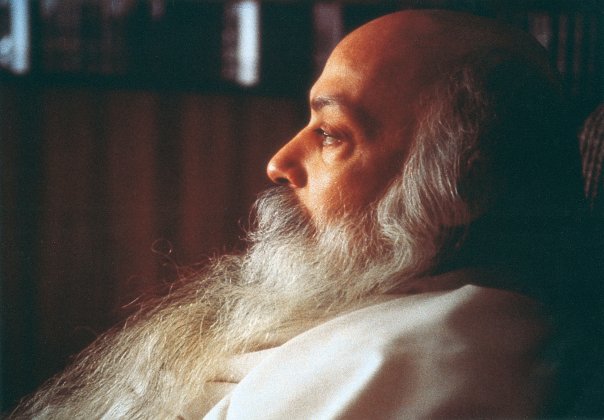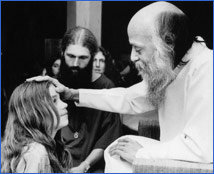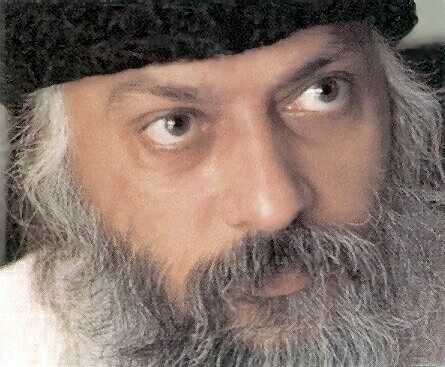奥修关于毫不费力的名言
- 看到存在的存在, 毫无选择地, 是毫不费力的意思.
- 如果你来到一个真正虔诚的人身边,你会在他身边感受到一种优雅, 毫不费力. 他没有对自己做过任何事, 他只是放松了终极, 你会感到周围的轻松.
- 轻松是一个很棒的现象. 一旦你知道, 您有数百万的事情对您而言可能是可能的. 通过努力市场; 通过轻松的上帝. 通过努力,您永远无法伸手去 - 您可以到达新德里, 但不去涅rv.
- 首先,您必须做所有可以做的事情, 然后您必须学习不做. 不做的事情是最伟大的, 轻松的努力是最大的努力.
- 努力使您毫不费力, 毫不费力地使您对上帝有用. 因此,努力不是绝对不必要的, 记住. 实现真理不是一个条件,但要轻松. 就像整天都在努力工作一样, 然后在夜晚,您进入非常非常深的睡眠. 但是,如果您一整天休息,那么在晚上,您会转身转身,不会有深度的睡眠. 整天的努力使您有可能放松.
- 有了Patanjali的努力是道路, 毫不费力是目标; 努力是手段, 毫不费力.
- 我教你既努力又轻松, 因为除非您获得轻松的努力, 除非您获得主动的被动性, 除非您获得唱歌 - 有利 - 它们看起来很自相矛盾 - 除非您取得了不动的舞蹈, 你还没有达到.
- 可以通过努力做很多事情,但是可以通过轻松完成更多. 可以通过意志实现很多,但是可以通过不再意志来实现更多. 无论您实现的目标永远都会给您带来负担; 这永远是冲突, 内部张力, 而且您可以随时丢失它。, 维持它最终消除了您.
- 轻松意味着什么都不做, 不活动 - akarma. 努力意味着做很多事情, 活动 - 业力. 两者都必须在那里. 做很多, 但是不要做一个行动者 - 那你两者都取得了. 搬家, 但不要参与其中. 活在世上, 但是不要让世界生活在你里面. 然后矛盾已被吸收. 那你不拒绝任何东西, 什么都不否认. 然后全神被接受.
- 佛说: 除非您达到第七次,否则永远不要停在任何地方, 轻松的状态, 陶国, 佛法, 卡比尔称Sahaj的状态, 自发的. 但是你必须为此努力.
- 卡比尔不相信努力, 他相信轻松. 那就是他所说的sahaj samadhi, 自发的狂喜. 卡比尔是一个情人; 他的道路是爱的道路. 爱不知道.
- 只有通过轻松而获得的东西永远不会给您带来负担, 只有那些不是负担的人才能是永恒的. 只有任何不自然的东西才能永远与您永远在一起.
- 为了进行冥想,您必须学习不努力的毫不费力的艺术, 放松的艺术, 不做任何事情的艺术. 那就是冥想 - 完全休息.
- 禅宗的整个态度是使您注意到没有努力的事实. 禅宗的态度是轻松.
- 道不是以女性为导向的. 道是两者 - 合成. 循环是男性能量, 固定是女性能量. 到达非活动, 通过行动到达被动. 通过努力毫不费力.
- 努力, 到达轻松. 寻求, 到达不寻求的状态. 有思想, 无脑子.
- 在室内世界中实现事物的唯一途径是Let-Go-一种轻松的, 放松. 这不是在做; 这是无非的. 这不是动作; 这是无所作为. 而且似乎很困难,因为从一开始每个人都被告知, “做点什么; 不要只是坐在那里! 总是总比没有好。”在内部世界中,这些不是法律. 没有什么比一切都更好. 内部世界, 什么都不做: 只是坐在那里! 这会起作用,因为每当你做某事, 您参与了其他事情; 当您不做任何事情时,您就会放松自己. 去哪里? 甚至不允许去, 因为这是行动的一部分. 因此,只要以自己为中心, 在您以自己为中心的那一刻是解放的可能性, 内在天空世界的第一个瞥见, 内星.
- 一个人无法通过任何活动实现真相. 需要活动来实现世界的事物. 您想实现内在的真理,您必须学习无行动的艺术, 轻松. 冥想不过是轻松, 这是无所作为. 它无所事事地坐着. 这不是在做, 记住.
- 有些事情是通过努力发生的, 而且有些事情只会通过轻松而发生. 有些事情永远不会通过努力发生, 而且有些事情永远不会因轻松而发生. 所有平凡的事物都是通过努力发生的; 所有的世俗都通过努力发生. 而所有都是神圣的, 超凡脱俗, 通过轻松发生.
- 如果您要轻松, 自我开始死亡. 当没有自我的时候, 您已经到达了您的现实 - 权利, 真相. 真理和权利必须是自然的. 简单意味着自然; 您可以无需任何努力找到它们. 简单是正确的意味着自然是正确的, 毫不费力, 自我是对的.
- 当禅宗大师说“毫不费力”时,他们指的是启蒙扎根时的国家. 现在不需要任何努力; 现在您可以放松并放松, 它将自身增长. 它会带来很多叶子, 还有很多花, 和许多祝福.




感谢您发布此信息。. 对我来说非常宝贵。. 谢谢…